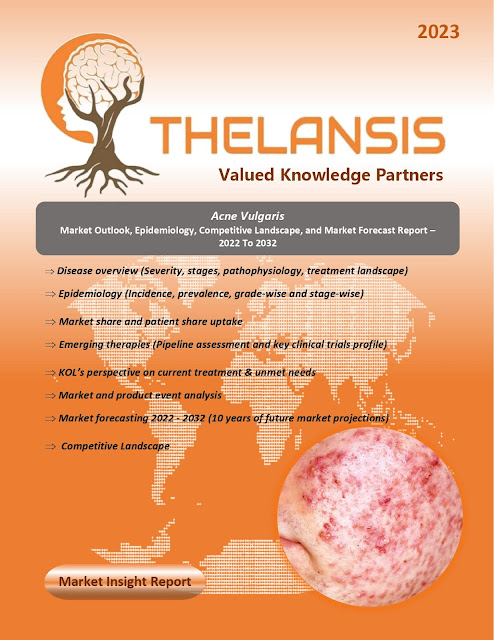Hypothalamic Obesity (HO) – Market Outlook, Epidemiology, Competitive Landscape, and Market Forecast Report – 2023 To 2033
Hypothalamic
obesity (HO) is a severe and heterogeneous disease related to several
conditions, such as hypothalamic damage caused by tumors and/or their
treatment, inflammatory, trauma, neurosurgery, cerebral aneurysm, single-gene
mutations (e.g., leptin, leptin receptor, CART, POMC), rare congenital
disorders with midline, genetic syndromes, and the use of psychotropic drugs.
The weight gain pattern in HO patients is characterized by a sudden onset and
rapid acceleration after hypothalamic damage. The symptoms of hypothalamic
obesity vary by the cause and include uncontrollable hunger, rapid, excessive
weight gain, and a low metabolic rate. If the pituitary gland is involved,
symptoms may include small underdeveloped testes in males and delayed puberty.
This condition most often occurs because of injury to the hypothalamus due to a
tumor, swelling in the brain, brain surgery, or head trauma.
·
The most common causes of acquired
hypothalamic damage are space-occupying lesions, such as craniopharyngiomas and
pituitary macroadenomas, with suprasellar extension and invasion of the
hypothalamic nuclei.
·
Craniopharyngiomas, the most common cause of
this condition, range between 1.5 to 2.8 cases per million population.
Thelansis’s
“Hypothalamic Obesity (HO) Market Outlook, Epidemiology, Competitive Landscape,
and Market Forecast Report – 2023 To 2033" covers disease overview,
epidemiology, drug utilization, prescription share analysis, competitive
landscape, clinical practice, regulatory landscape, patient share, market
uptake, market forecast, and key market insights under the potential Hypothalamic
Obesity (HO) treatment modalities options for eight major markets (USA,
Germany, France, Italy, Spain, UK, Japan, and China).
KOLs insights of Hypothalamic Obesity
(HO) across 8 MM market from the centre of Excellence/ Public/ Private
hospitals participated in the study. Insights around current treatment
landscape, epidemiology, clinical characteristics, future treatment paradigm,
and Unmet needs.
Hypothalamic
Obesity (HO) Market Forecast Patient Based Forecast Model (MS. Excel Based
Automated Dashboard), which Data Inputs with sourcing, Market Event, and
Product Event, Country specific Forecast Model, Market uptake and patient share
uptake, Attribute Analysis, Analog Analysis, Disease burden, and pricing
scenario, Summary, and Insights.
Thelansis Competitive Intelligence (CI) practice
has been established based on a deep understanding of the pharma/biotech
business environment to provide an optimized support system to all levels of
the decision-making process. It enables business leaders in forward-thinking
and proactive decision-making. Thelansis supports scientific and commercial
teams in seamless CI support by creating an AI/ ML-based technology-driven
platform that manages the data flow from primary and secondary sources.
Tags: Hypothalamic
Obesity (HO), Hypothalamic Obesity (HO) market
outlook, Hypothalamic Obesity (HO) competitive
landscape, Hypothalamic Obesity (HO) market
forecast, Thelansis, Primary market research, KOL insights, Competitive
Intelligence (CI)



%20Market%20Outlook%20and%20Forecast.webp)
Comments
Post a Comment